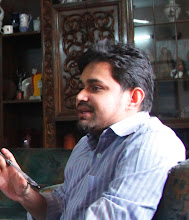The government’s two-mindedness over decision-making was once again evident during the recent controversy over screening of Indian movies in Bangladeshi cinema halls. In the space of 24 hours, people got two messages. First, the government had lifted the ban on the screening of Indian movies and then, that it had stayed on the previous decision. 
On April 24, an international news agency reported that Bangladesh has lifted a four-decade ban on Indian films, quoting the commerce minister. However, just one day after the report, on April 26, Prime Minister Sheikh Hasina during a cabinet meeting asked the commerce ministry to repeal the decision to withdraw a ban on import and display of Indian films in cinema halls. According to a newspaper report, the prime minister expressed her dissatisfaction over the decision regarding the lifting of the ban slapped in 1972. The repeal decision came just hours after a protest, at the Film Development Corporation, by producers and actors involved with the Bangladesh film industry.
Saturday, 1 May 2010
The debate over Indian movies
Death knell
Around the afternoon, Shahjahan, a construction worker, had just got off from his shift at a constructed building in the Mirpur 10 area. Although his duty for the day was over, he was waiting around for his day’s salary. While he waited, the contractor was having a cup of tea at a nearby stall. 
photo by Al-Emrun Garjon
At one point, Shahjahan, accompanied by some colleagues, went to the tea stall to request the contractor for payment. But the contractor asked them to wait some more. Shahjahan waited till 8pm but did not get his payment. During this time, the contractor sent him to run another errand at the under-construction building.
‘Such strenuous work followed by delays in payment is a daily affair for us,’ shares Shahjahan. ‘We are never paid overtime for the additional work.’ Shahjahan and his colleagues were handed their payment around 9:30pm that day.




